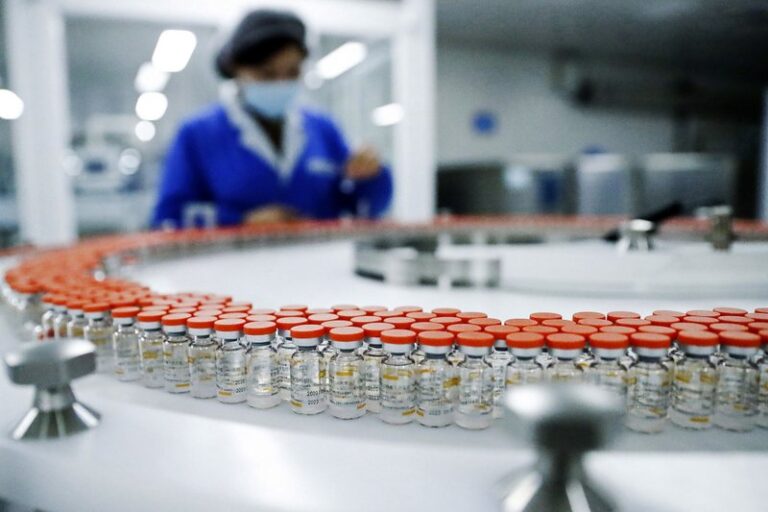
(AP) — The plane laden with vaccines had just rolled to a stop at Santiago’s airport in late January, and Chile’s president, Sebastián Piñera, was beaming. “Today,” he said, “is a day of joy, emotion and hope.”
The source of that hope: China – a country that Chile and dozens of other nations are depending on to help rescue them from the COVID-19 pandemic.
China’s vaccine diplomacy campaign has been a surprising success: It has pledged roughly half a billion doses of its vaccines to more than 45 countries, according to a country-by-country tally by The Associated Press. With just four of China’s many vaccine makers claiming they are able to produce at least 2.6 billion doses this year, a large part of the world’s population will end up inoculated not with the fancy Western vaccines boasting headline-grabbing efficacy rates, but with China’s humble, traditionally made shots.
Amid a dearth of public data on China’s vaccines, hesitations over their efficacy and safety are still pervasive in the countries depending on them, along with concerns about what China might want in return for deliveries. Nonetheless, inoculations with Chinese vaccines already have begun in more than 25 countries, and the Chinese shots have been delivered to another 11, according to the AP tally, based on independent reporting in those countries along with government and company announcements.
It’s a potential face-saving coup for China, which has been determined to transform itself from an object of mistrust over its initial mishandling of the COVID-19 outbreak to a savior. Like India and Russia, China is trying to build goodwill, and has pledged roughly 10 times more vaccines abroad than it has distributed at home.
“We’re seeing certainly real-time vaccine diplomacy start to play out, with China in the lead in terms of being able to manufacture vaccines within China and make them available to others,” said Krishna Udayakumar, founding director of the Duke Global Health Innovation Center at Duke University. “Some of them donated, some of them sold, and some of them sold with debt financing associated with it.”
China has said it is supplying “vaccine aid” to 53 countries and exports to 27, but it rejected a request by the AP for the list. Beijing has also denied vaccine diplomacy, and a Ministry of Foreign Affairs spokesperson said China considered the vaccine a “global public good.” Chinese experts reject any connection between the export of its vaccines and the revamping of its image.





